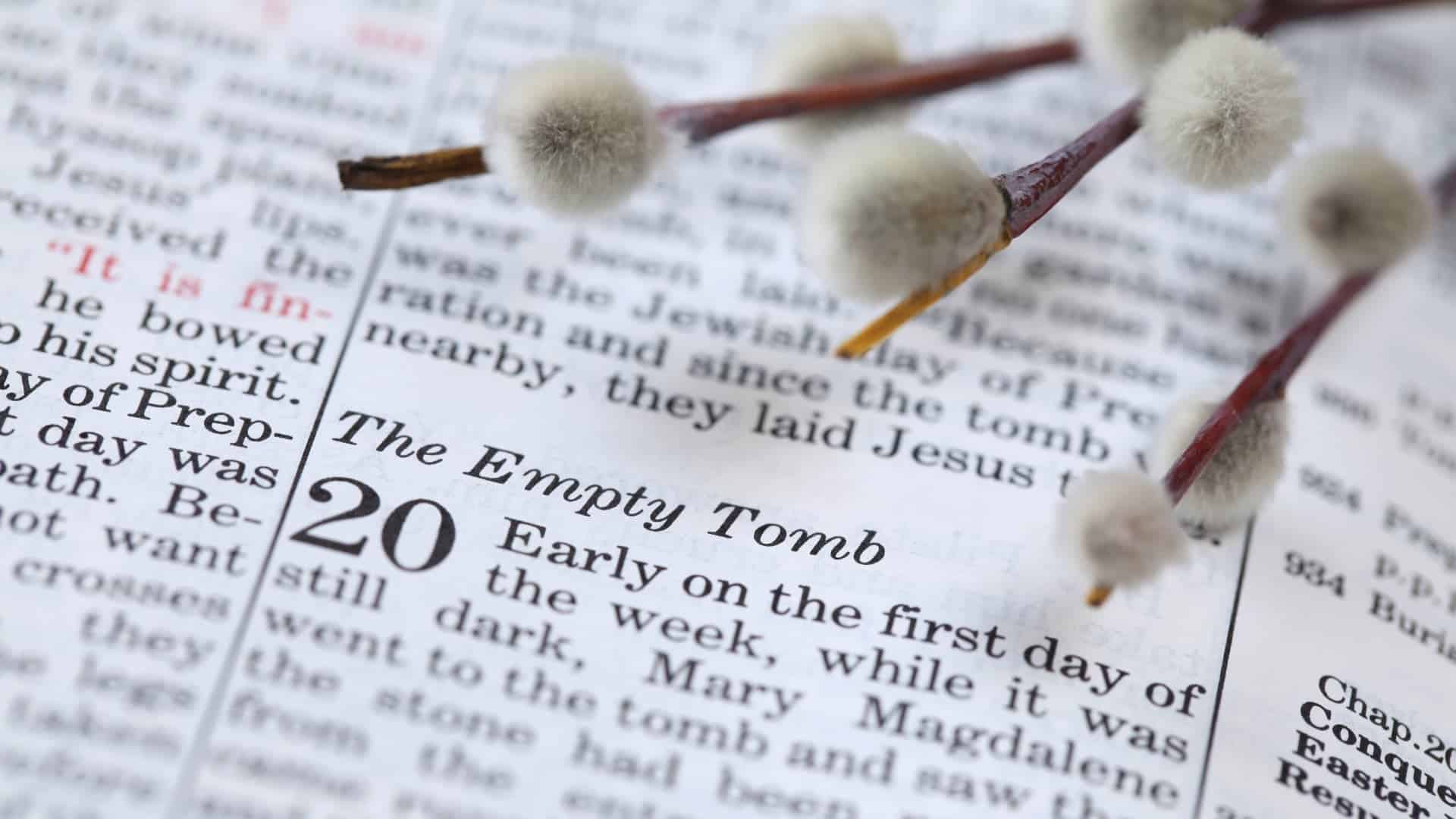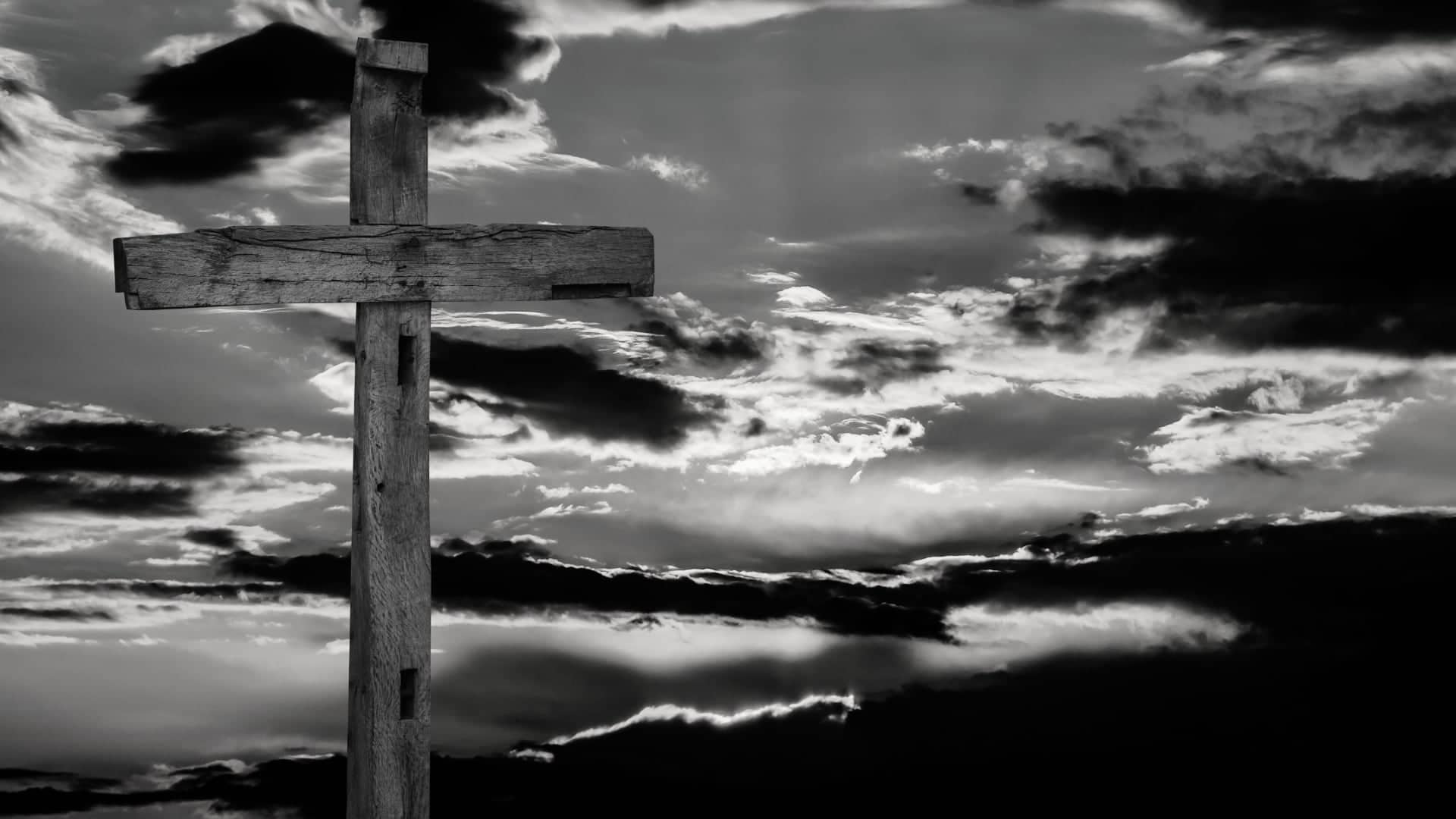Living Water (John 4:1-28)

Occasionally you have a conversation that changes your life. You can’t plan these things. It’s not like you wake up one morning and say, “Today I’m going to have a conversation, and it’s going to change my life forever.” They seem to come out of the blue when you least expect it.
Today we get to eavesdrop on such a conversation. It happened almost two thousand years ago, and it’s so significant that, if the world is around a thousand years from now, they’ll still be talking about it. It’s a conversation that still has the power to change our lives today.
I’d like to look at four things in this passage: the surprise, the need that’s uncovered, the solution to this need, and the resolution.
First, let’s look at this story and see the surprise.
Because one of the most surprising things about this conversation is that it even took place.
In John 4:4-9 we read:
Now he had to go through Samaria. So he came to a town in Samaria called Sychar, near the plot of ground Jacob had given to his son Joseph. Jacob’s well was there, and Jesus, tired as he was from the journey, sat down by the well. It was about noon.
When a Samaritan woman came to draw water, Jesus said to her, “Will you give me a drink?” (His disciples had gone into the town to buy food.)
The Samaritan woman said to him, “You are a Jew and I am a Samaritan woman. How can you ask me for a drink?” (For Jews do not associate with Samaritans.)
You need to know a little about the background of these times to understand how surprising this conversation was. This is a conversation that nobody would have expected.
We read, “Now he had to go through Samaria.” Jesus was Jewish, and Jews and Samaritans did not get along at all. Samaritans were people with some Jewish background who had intermarried with other nations to become a mixed race. They had their own version of the Jewish Bible, their own temple. The orthodox Jews of that time hated Samaritans so intensely that they often traveled miles out of their way to avoid the Samaritan territory. Hostility between the two groups was widespread and very bitter.
On top of that, Jesus and this woman faced a gender divide that was very unusual in that day. Today we don’t think twice about a man initiating a conversation with a woman like Jesus did here, but back then it was highly unusual.
On top of this, this was a woman with a sexual history. She’s at the well in the middle of the day, at noon, and alone. We read those details and it doesn’t really strike us as unusual at all. But people back then did not go to the well at noon in the heat of the day. They would much rather go early in the morning or later in the day when it was cooler. And they wouldn’t go alone. She had to carry back water for drinking, cooking, and washing. It’s not a fun job, but it’s a lot better if it’s social and if you have help. Why is she there in the middle of the day and all alone? Probably because she’s a bit of an outcast. We’re going to read later that she’s had serial marriages and is now living with a man who is not her husband, which was against both Jewish and Samaritan standards at that time.
On top of that, she wasn’t looking for a conversation or an encounter with Jesus. It’s not like she woke up that day and prayed that God would move in her life that day. She has all these strikes against her: racial barriers, gender barriers, moral barriers, and even spiritual barriers. And yet Jesus reaches past those barriers and strikes up a conversation that changed her world, and continues to change worlds today.
Listen: it’s important to see this. In the last chapter, Jesus has just finished talking to a man who has none of these barriers. He’s Jewish, he’s male, he’s upstanding, and he’s spiritually minded. It’s very easy to think that these are the people that Jesus likes. Jesus likes hanging out with good people who live good lives and who have good reputations. But John here shows us that Jesus does not just relate to people like that. Jesus has no problem taking the initiative with people who aren’t that good, who may have all kinds of reasons for not being at a church. Jesus initiates with people who have pasts, people that other people have written off. In other places he says that these people enter his kingdom before the “good” people.
You may be here this morning thinking that you have to overcome all of these barriers before you can have a conversation with Jesus. You have to clean up your life and get ready to become a respectable, religious-type person. But the message of the Bible is that Jesus initiates with us right where we are in the most surprising way. Becoming a religious do-gooder can actually take you further away rather than closer. Jesus initiates with the most unlikely people. He may be initiating with some of you this morning.
That’s the first thing we see in this story. Jesus initiates in a surprising way with unlikely people. We also see something else:
Second, that Jesus uncovers our deepest need.
Jesus and this woman are at a well. It’s noon and both are probably very thirsty. These days we rarely feel thirst because we usually have water handy. Think of a time when you have really been thirsty. You finally get some water or some other drink, and when you get it, you’ve never tasted anything better.
Jesus touches on this need for water, because he’s already asked for a drink. He takes it further when he says in verse 10: “If you knew the gift of God and who it is that asks you for a drink, you would have asked him and he would have given you living water.” What’s living water? It’s water that moves in a stream or a spring, as opposed to water that sits in a well. Now, if there was a stream or a spring around, there would have been no need for this well, which was at least a hundred feet deep. Where would Jesus have found this living water? We find out that Jesus is not actually talking about a literal spring or stream. He’s using it as an image to get to her deep thirst, a thirst that goes far beyond physical thirst. In verses 13 and 14 he says:
Everyone who drinks this water will be thirsty again, but those who drink the water I give them will never thirst. Indeed, the water I give them will become in them a spring of water welling up to eternal life.
If you’re ever in Philadelphia, there’s a beautiful drive that leads out of the city along the eastern bank of the Schuylkill River. Along the drive there is a section of the riverbank lined with boathouses, called Boathouse Row; and across from Boathouse Row there is a statue of a pilgrim with a Bible under his arm. If a person is on foot and is exploring the riverbank, he soon finds a stream that empties into the Schuylkill near the pilgrim, as well as a trail that winds along it. If he follows this trail up over Sedgley Hill toward Brewery Town, he comes upon the source of the spring. There, over the spring’s source, there’s an inscription once placed by the city government–“Whosoever drinks of this water shall thirst again.”
I wish that we could post this inscription over many things – over our careers, over our relationships, over achievements, over everything really. All of these quench our thirst at some level, but whoever drinks of these things will thirst again. They don’t ultimately quench our thirst. We use money, sex, and power to try to quench our spiritual thirst. Ultimately these thirst quenchers leave us unsatisfied. When used as a substitute for the living water that Jesus talks about, they can be spiritual poison. They ultimately leave us thirsty.
Quarterback Tom Brady set the record for most touchdown passes in a regular season, paving the way for his winning the MVP award. At the age of 30, he has already won three Super Bowls–an accomplishment that sets him apart as one of the best quarterbacks to ever play the game. He’s now married to a supermodel. Yet listen to what he said in an interview:
Why do I have three Super Bowl rings and still think there’s something greater out there for me? I mean, maybe a lot of people would say, “Hey man, this is what [it’s all about].” I reached my goal, my dream, my life. Me? I think, “It’s got to be more than this.” I mean this isn’t–this can’t be–all it’s cracked up to be.
What’s the answer? I wish I knew… I love playing football, and I love being quarterback for this team. But at the same time, I think there are a lot of other parts about me that I’m trying to find.
Canadian author Doug Coupland put it this way in one of his novels:
Now, here is my secret. I tell you with an openness of heart I doubt I will ever have again. So I pray you’re in a quiet room as you hear these words. My secret is that I need God. My secret is that I need God, that I am sick and can no longer make it alone. I need God to help me give, because I am no longer capable of giving. To help me be kind, because I no longer seem capable of kindness. I need God to help me love, as I seem beyond being able to love.
Jesus has an uncanny ability to put his finger on the greatest need of the person he is talking to. Here he puts his finger on this woman’s deepest need. She’s spiritually thirsty. She has a deep hunger for God that nothing else can fill.
So far we’ve seen that Jesus initiates with unlikely people, and that he puts his finger on their deepest needs.
The next thing we see in this passage is the solution to this thirst.
There are two things we learn about this in this passage. The first is what is not the solution. You’ll notice in this passage that Jesus and this woman have an interesting conversation about a lot of things:
- Her moral situation in verses 16-18 – Jesus surfaces the issue, which allows her to know that he is no ordinary person. Make no mistake: Jesus knows about all the things we’d like to hide, but they’re not really the issue. Our sin is a big issue, but Jesus can give us living water no matter what our sins may be.
- Religious arguments in verses 19-25 – Jesus and the woman get into all kind of issues – which temple is the right one, and so on. I don’t think this was a diversionary tactic. Once the woman realized that he was at the very least a prophet, she brought up one of the live issues of that day. There are all kinds of issues that we can talk about today – science and the Bible, why there is so much evil in the world, what about other religions – but they are not the real issue. They’re important, but they are not the core issue.
You’ll notice that the core issue in this passage is actually a person. They get to it in verses 25-26:
The woman said, “I know that Messiah (called Christ) is coming. When he comes, he will explain everything to us.”
Then Jesus declared, “I, the one speaking to you–I am he.”
What is he saying here? He’s saying that the key issue we must wrestle with is who Jesus is. He claims to be the source of living water. He claims, as one commentator puts it, “more than either Jew or Samaritan had comprehended in the word ‘Christ’. He is the answer of God to the sin of the world” (Edwin Hoskyns). In which case Jesus is not just giving this woman information. He is giving her an invitation. It’s a challenge to respond. It’s another way of Jesus saying, “Come to me, and I will satisfy your deepest thirst.”
This is very good news. Jesus claims to be sent from God. He goes out of his way to encounter people who have a past. And he reveals their deepest hunger, and then offers himself as the solution to their thirst. Later on in John, Jesus goes to the cross. The Bible teaches that Jesus takes our place. In John 19:28 Jesus says, “I am thirsty.” This is more than just physical thirst. He would have been physically thirsty. He had been scourged. He was bleeding and hanging in the hot near-Eastern sun. But it would have been more. Tim Keller says, “When Jesus says I’m thirsty he says He is taking the spiritual cosmic thirst so that He can give you the Water of Eternal Life.”
Well, what to make of all of this?
I hope that you will see this morning that Jesus surprises us by initiating with surprising people. He also identifies our hunger. He then presents himself as the real solution, the one who assumes our deepest thirst, and offers us satisfaction for our deep longing for God. He claims to be the one who has come to save us and satisfy us, and he invites us to come to him.
What do we do about this? C.S. Lewis wrote a scene in his book The Silver Chair. Jill is in the land of Narnia, and she’s thirsty. At once, she sees a magnificent stream . . . and a fearsome lion (Aslan, who represents the Jesus):
“If I run away, it’ll be after me in a moment,” thought Jill. “And if I go on, I shall run straight into its mouth.” Anyway, she couldn’t have moved if she had tried, and she couldn’t take her eyes off it. How long this lasted, she could not be sure; it seemed like hours. And the thirst became so bad that she almost felt she would not mind being eaten by the Lion if only she could be sure of getting a mouthful of water first. . . .
“Are you not thirsty?” said the Lion.
“I’m dying of thirst,” said Jill.
“Then drink,” said the Lion.
“May – could – would you mind going away while I do?” said Jill.
The Lion answered this only by a look and a very low growl. And as Jill gazed at its motionless bulk, she realized that she might as well have asked the whole mountain to move aside for her convenience. The delicious rippling noise of the stream was driving her nearly frantic.
“Will you promise not to do anything to me, if I do come?” said Jill.
“I make no promise,” said the Lion.
Jill was so thirsty now that, without noticing it, she had come a step nearer. “Do you eat girls?” she said.
“I have swallowed up girls and boys, women and men, kings and emperors, cities and realms,” said the Lion. It didn’t say this as if it were boasting, nor as if it were sorry, nor as if it were angry. It just said it.
“I daren’t come and drink,” said Jill.
“Then you will die of thirst,” said the Lion.
“Oh dear!” said Jill, coming another step nearer. “I suppose I must go and look for another stream then.”
“There is no other stream,” said the Lion. It never occurred to Jill to disbelieve the Lion – no one who had seen his stern face could do that – and her mind suddenly made itself up.
It was the worst thing she had ever had to do, but she went straight to the stream, knelt down, and began scooping up water in her hand. It was the coldest, most refreshing water she had ever tasted. You didn’t need to drink much of it, for it quenched your thirst at once. Before she tasted it she had been intending to make a dash away from the Lion the moment she had finished. Now, she realized that this would be on the whole the most dangerous thing of all.
Let’s pray.
Jesus initiates with us. It’s surprising. He identifies our deepest need, our deepest thirst. He offers himself as the solution to that thirst. He is the one who, when he died, assumed our deepest thirst so that he could offer us the water of eternal life.
Come and drink. There is no other stream.
Come, all you who are thirsty,
come to the waters;
and you who have no money,
come, buy and eat!
Come, buy wine and milk
without money and without cost.
Why spend money on what is not bread,
and your labor on what does not satisfy?
Listen, listen to me, and eat what is good,
and you will delight in the richest of fare.
Give ear and come to me;
listen, that you may live.
(Isaiah 55:1-3)





